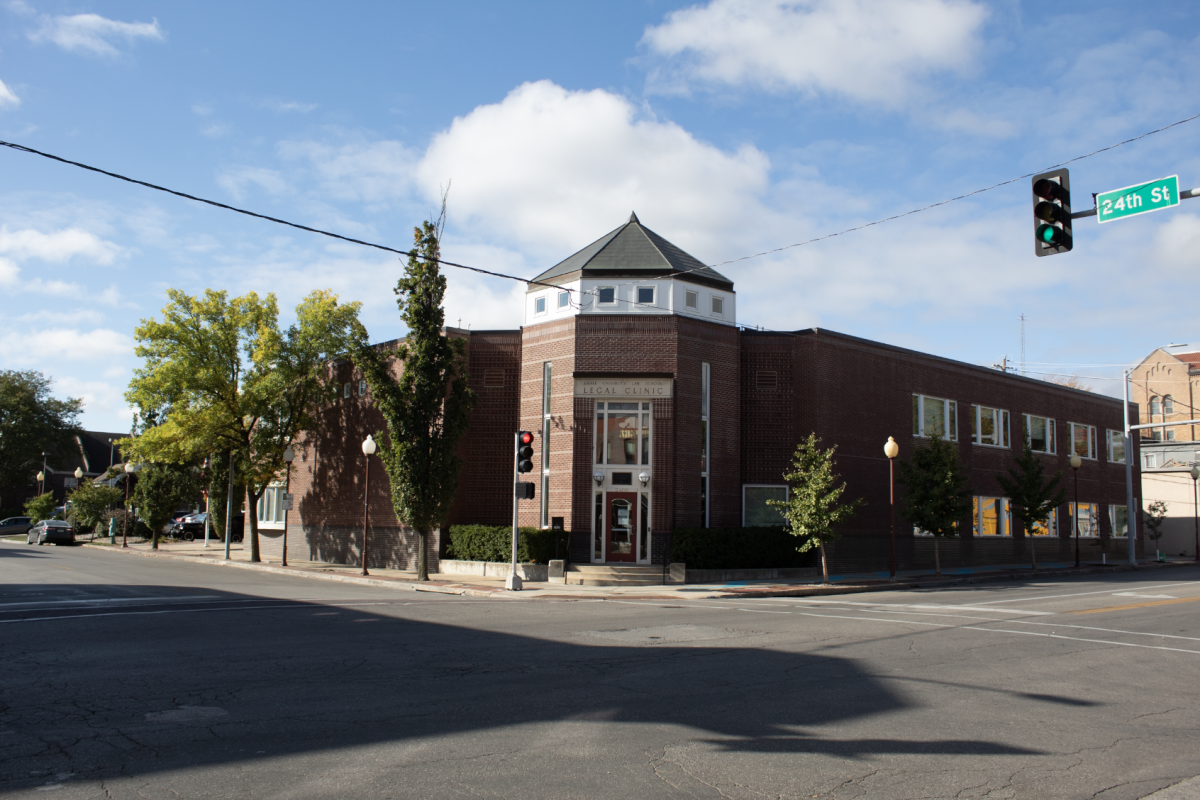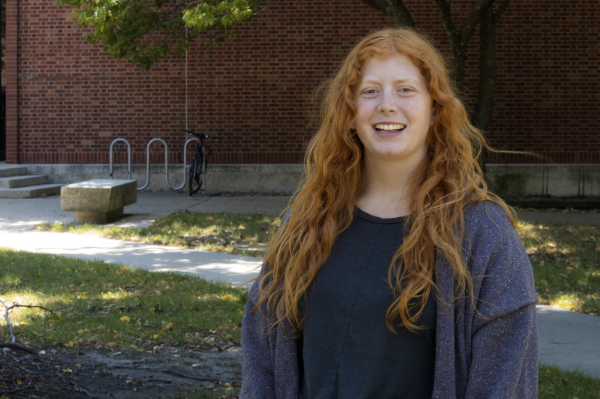The Drake Legal Clinic has undergone many changes since its founding 50 years ago, including moving from its original home on Brattleboro Street to the new Smith Center. However, the clinic’s mission has stayed the same: to provide law students with hands-on experience while also providing the community with quality free legal services.
In 1971, Drake Law added a new component to its educational program: an in-house legal clinic. According to professor Suzan Pritchett, director of clinics and experiential education at Drake Law, the clinic started out as a small street lawyer program intended to provide students with some hands-on experience.
“One of the best ways for them to learn and prepare to be good lawyers is to actually do the work of lawyering before they graduate and to do that under the supervision of faculty members or experienced attorneys,” Pritchett said. “Not only are we thinking really deeply about how to teach students to be lawyers in this environment, but we’re also making sure that we abide by the rules of professional responsibility and that we have good policies and procedures in place from a practice management perspective to ensure that we’re able to provide the clients that we represent the highest quality of service and legal representation that they deserve.”
Organizations like The Legal Aid Society of Polk County received funding early on and increased the number of legal aid lawyers, but the number of universities nationwide with in-house legal clinics was few. In 1968, Drake Law Professor Gene Blackburn supervised 3L students who provided other Drake students with consulting services on petty criminal and civil legal matters. Polk County Legal Aid provided Professor Blackburn with funds to send him and colleagues to check out Harvard Law’s legal clinic in 1970, which would act as inspiration for the Drake Legal Clinic.
The emphasis on free legal aid spawned by the landmark Supreme Court case Gideon v. Wainwright contributed to the creation of the clinic. Gideon v. Wainwright protected one’s right to counsel by ensuring those who cannot pay for their own lawyers will be provided one by the government under the 14th and 6th amendments. This decision also indirectly created momentum in securing counsel for all in civil cases too.
In 1987, the Neal and Bea Smith Law Center was built and named after Former Congressman Smith and his wife in recognition of their service to their community, nation and alma mater. The clinic was built using a $4 million grant given by U.S. Congress that was included in a supplemental budget appropriation bill introduced by former Rep. Smith. $1 million went into the actual construction of the new center, while the other $3 million went into operating costs such as staffing. According to Pritchett, the new building and new funding began a time period of flourishing for Drake Legal Clinic.
“We are representing community members, start-ups or small businesses that deserve lawyers and should have lawyers in their process, and because of the clinic and our ability to represent people for free, we’ve been able to provide them,” Pritchett said. “We feel like providing that service to the community is also really central to who we are, and it’s sort of as reflected in the fact that we have this building that’s like on the bus line apart from the law school, and we did that so that people can have an easier time getting here if they don’t own a car have easy transportation.”
Pritchett said that the legal community is filled with judges and attorneys who have been through the clinic. According to Pritchett, these lawyers are testaments to the impact of the clinic as they are examples of excellent lawyers.
The Drake Legal Clinic has six different practice areas: criminal law, children’s law, small business and entrepreneurial law, immigration law and civil law. In each section of Drake Legal Clinic, students get practical experience in a different area of law while under the supervision of an expert in that field. Multiple students and professors at the clinic said how beneficial stepping out of the classroom is when learning the necessary legal skills.
“You learn how to apply the theories and see laws you’re taught in your first year or so of law school into how you’re actually going to use that in real life,” third-year law student Leah Dodd said. “A lot of times when you graduate law school, you go to practice for the first time and you have not seen any of these things that we are doing. So it’s nice to have them while you’re still learning so you can ask questions.”
Pritchett said that Drake Legal Clinic wants to continue to build this successful program so that Drake Law students and the community can continue to reap the benefits. Pritchett and colleagues said the camaraderie and hands-on experience this program offers is unique to Drake and provide many opportunities.
“There are so many cases and so many students that I’ve been honored to teach,” said professor Robert Rigg, director of the criminal defense program. “I wish I could think of one thing, but I think it’s the entire accumulation of being here for so long and seeing the progress of students becoming lawyers and then becoming judges. I think that that’s been a remarkable experience for me.”








